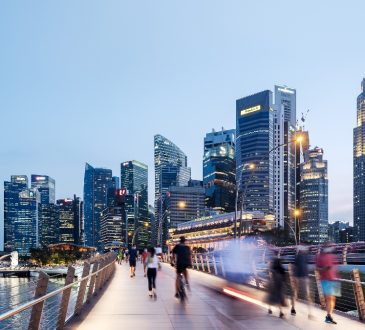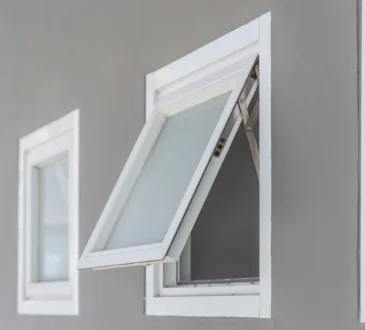
In recent years, sustainability has become a cornerstone of development in Dubai, with increasing emphasis on eco-conscious building and design practices. Amidst this growing green movement, the carpentry industry is undergoing a quiet yet impactful transformation. From using responsibly sourced materials to adopting energy-efficient techniques, sustainable carpentry in Dubai is redefining how residential, commercial, and hospitality spaces are built and furnished. This blog explores how eco-friendly materials and practices are shaping the future of Carpentry Dubai and why it matters more now than ever before.
Why Sustainable Carpentry Matters in Dubai
Dubai is known for its rapid urban growth, world-class architecture, and luxury lifestyle. However, the environmental cost of rapid construction has prompted developers and consumers alike to rethink traditional practices. As part of the UAE’s broader vision for a greener future, including initiatives like the UAE Green Agenda and Dubai Clean Energy Strategy 2050, sustainable carpentry plays a vital role in minimizing environmental impact.
Sustainable carpentry is not just a trend—it’s a necessity. From reducing deforestation and lowering carbon emissions to enhancing indoor air quality and promoting healthier living spaces, the benefits are numerous. It also aligns with global certifications such as LEED (Leadership in Energy and Environmental Design), which are increasingly sought after in Dubai’s competitive real estate market.
Eco-Friendly Materials Gaining Popularity
Reclaimed Wood
Reclaimed wood is one of the most sustainable materials used in carpentry. It involves repurposing wood from old buildings, shipping pallets, or discarded furniture. In Dubai, where luxury often meets conscious consumerism, reclaimed wood adds both character and sustainability to interiors. Its weathered textures and rich tones bring a unique charm to custom furniture, wall paneling, and flooring while significantly reducing the need for newly harvested timber.
Bamboo
Bamboo is a fast-growing, renewable resource that’s gaining traction in Dubai’s eco-design circles. Strong, flexible, and aesthetically versatile, bamboo is an excellent choice for everything from cabinetry to decorative finishes. It’s also naturally resistant to pests and requires minimal processing, making it a low-impact alternative to conventional hardwoods.
Engineered Wood from Sustainable Sources
Engineered wood products like MDF (Medium Density Fiberboard) and plywood are commonly used in carpentry, but not all are made equal. Sustainable carpenters in Dubai are now opting for certified wood products, such as those with FSC (Forest Stewardship Council) or PEFC (Programme for the Endorsement of Forest Certification) labels. These certifications ensure that the wood comes from responsibly managed forests that provide environmental, social, and economic benefits.
Low-VOC Finishes and Adhesives
Volatile Organic Compounds (VOCs) found in traditional paints, stains, and adhesives can release harmful chemicals into the air, affecting both the environment and indoor air quality. Eco-conscious carpenters now use low-VOC or VOC-free products that are safer for homeowners and reduce environmental pollution. In Dubai, where indoor air quality is a concern due to prolonged use of air conditioning, this switch can make a significant difference.
Sustainable Carpentry Practices in Dubai
Waste Reduction and Recycling
Modern carpentry workshops in Dubai are embracing waste management systems that prioritize recycling and reuse. Off-cuts and leftover materials are either repurposed for smaller projects or sent to recycling facilities. Digital tools like CNC (Computer Numerical Control) machines help in precise cutting, reducing material wastage.
Energy-Efficient Workshop Operations
Sustainable carpentry isn’t limited to materials—it extends to the way workshops operate. Many carpentry firms in Dubai are investing in energy-efficient machinery, solar-powered equipment, and LED lighting to reduce their carbon footprint. These practices not only conserve energy but also lower operational costs, making sustainability a smart business move.
Custom and Modular Design
Custom-built and modular carpentry solutions reduce overproduction and promote efficiency. Instead of mass-produced furniture that may end up in landfills, custom carpentry allows for made-to-measure solutions that fit specific client needs and space requirements. This personalized approach minimizes waste and encourages a longer product lifecycle.
Local Sourcing
Sourcing materials locally reduces the environmental impact associated with long-distance transportation. Many carpenters in Dubai are building relationships with regional suppliers who provide sustainable wood and hardware. This supports the local economy while reducing the project’s overall carbon footprint.
The Role of Consumer Awareness
Consumer demand plays a crucial role in driving sustainable carpentry forward. As more residents and businesses in Dubai seek eco-friendly alternatives, carpenters are encouraged to innovate and adapt. Architects and interior designers are also influential in specifying sustainable carpentry in their projects, pushing the entire supply chain toward greener practices.
Educational initiatives, online resources, and design expos like Dubai Design Week are helping spread awareness about the importance and benefits of sustainable carpentry. Clients today are not just looking for beauty and functionality—they’re also asking, “Is it sustainable?”
Conclusion: Crafting a Greener Future
Sustainable carpentry in Dubai is not just about using eco-friendly materials—it’s a holistic approach that includes conscious design, responsible sourcing, and smart operations. As the city progresses toward a more sustainable Furniture Dubai, carpentry is evolving to support this vision with solutions that are beautiful, functional, and kind to the planet.
Whether you’re a homeowner, interior designer, or business owner, choosing sustainable carpentry is a step toward a healthier, more responsible lifestyle. In a city that sets global benchmarks, embracing sustainable craftsmanship is both an ethical and stylish choice.




